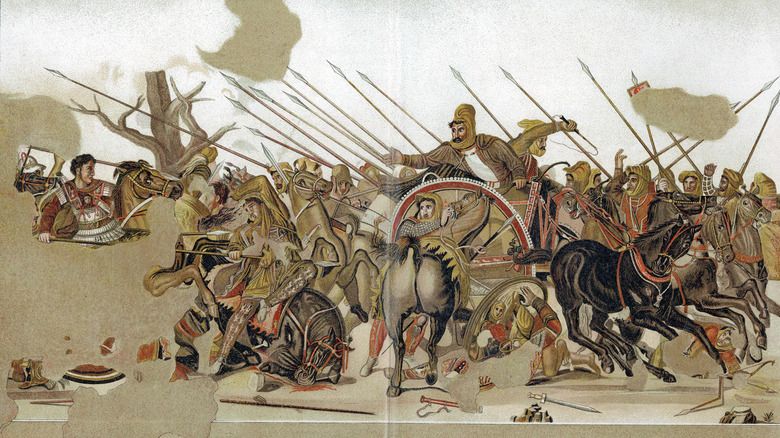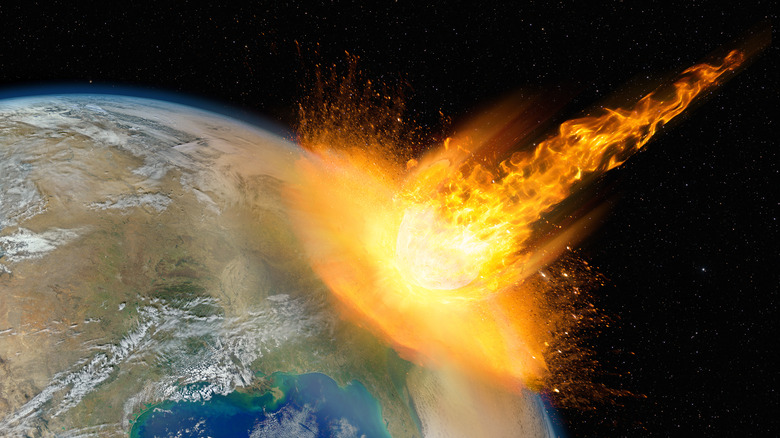
The Surprising Reason America Could Potentially Collapse In Our Lifetime
Throughout history, countless nations have repeatedly risen from humble beginnings to become some of the most dominant forces the world has experienced. Macedonia, for example, began as a constantly besieged kingdom on the periphery of the Hellenic world but within the lifetimes of King Phillip II and his son Alexander the Great, it had gone on to conquer most of the known world from Greece to the edge of India. Rome, meanwhile, was just a small city-state at the mercy of its mysterious Etruscan neighbors before conquering most of Western Europe, the Balkans, North Africa, and the Levant.
What these prominent empires and countless others have in common — apart from their power and expansionism — is their lifespan. History’s largest and most commanding empires like Rome have seldom survived beyond a few centuries before seeing themselves lose relevance, experience drastic changes in their internal and/or external borders, or disappear altogether (via History.com). In an op-ed by Georgie Anne Geyer for Times-Standard, she notes that, on average, historical empires have only lasted for around 250 years — which raises the possibility that America may see some changes on the horizon.
The collapse of an Empire can either be a sudden or gradual process
The conquests of past empires may fill one with awe with regard to their speed and scale. The Macedonians conquered, among others, the largest empire to have then ever existed — the Persian Empire. Yet the massive empire Alexander forged in just a few years similarly collapsed with great speed as soon as he died. Despite the efforts of many, including Alexander’s half-sister Cynane, to take the empire in its entirety, the conflict between his generals was too great for a single state to exist. After more than a decade, dynasties such as Ptolemaic Egypt and the Seleucid Empire emerged from the shattered region. Macedonia still existed but had little direct control over much beyond Greece. Eventually, even this fell to Rome after subsequent centuries of political infighting and military decline, per The Irish Times.
The collapse of Rome was an exceptionally gradual process. Like the Macedonians, the Romans conquered an enormous amount of territory. Unlike their spiritual predecessors though, the latter managed to maintain control of their holdings for centuries. Unfortunately for them, however, the costs of over-extension began to wear away the empire’s foundations. A variety of factors plagued them, including the thinning of military supply lines, unrest from and raids by conquered peoples, overpopulation, plagues, and even potentially a mini-ice age (via The Great Courses Daily). The Empire’s divisions into halves and fourths were desperate attempts to mitigate the detriments of centralization. Even this could not stop the collapse and, in the end, the Eastern Roman/Byzantine Empire was left as Rome’s last remnant, waning into similar decline by 1204.
America is approaching a deadline that ended most empires
The United States is no stranger to dramatic conflict and expansion. From civil war to the often bloody drive of Manifest Destiny, much of America’s foundation is similar to older nominal and de-facto empires. Even after the solidification of the lower 48 states, for instance, came America’s overthrow of the Hawaiian monarchy and its gunboat diplomacy upon first contact with Japan and Korea (via The National Interest). American territorial expansion for the most part ended by the conclusion of the Spanish-American war, though intervention in regions such as Latin America remained commonplace (via allthatsinteresting.com). In spite of interwar public support for isolationism after 1945, the U.S. stood alongside only the Soviet Union as one of the world’s two superpowers. Any thoughts of returning to an inwardly focused America disappeared, as the U.S. expanded its influence across the world to remove that of its sole rival.
In the 21st century, the “War on Terror” is, in many ways, a continuation of past policies — with hundreds of U.S. military bases now existing throughout the world (via Politico). Thousands of lives have been lost and billions of dollars spent in this two-decade campaign to end religious extremism. However, American efforts to nation-build have sometimes led to dictatorial leadership being replaced by weak governments unable to control their countries (e.g., the rise of ISIS/ISIL in Iraq, the 2021 resurgence of the Taliban in Afghanistan, and the rise of slavery during the Libyan civil war). Even America’s greatest successes, such as the death of Osama bin Laden, resulted in little long-term change in the region. This failure does not bode well for the now politically turbulent America which, as noted by Geyer, is approaching the 250-year imperial expiration date.

The Strange Case Of Billy Milligan And His 24 Personalities

Most Dangerous US National Parks

The Untold Story Of Gloria Richardson

The Wild True Story Of Satan's Storm

The CIA Plot Howard Hughes Was A Part Of

The Texas Killing Fields Explained

The Battle Of Britain Featured One Of The Earliest Uses Of This

The Controversial Truth About The Filibuster

Yoko Ono Is Worth A Lot More Than You Think

The Truth About Sharon Tate's Childhood

























